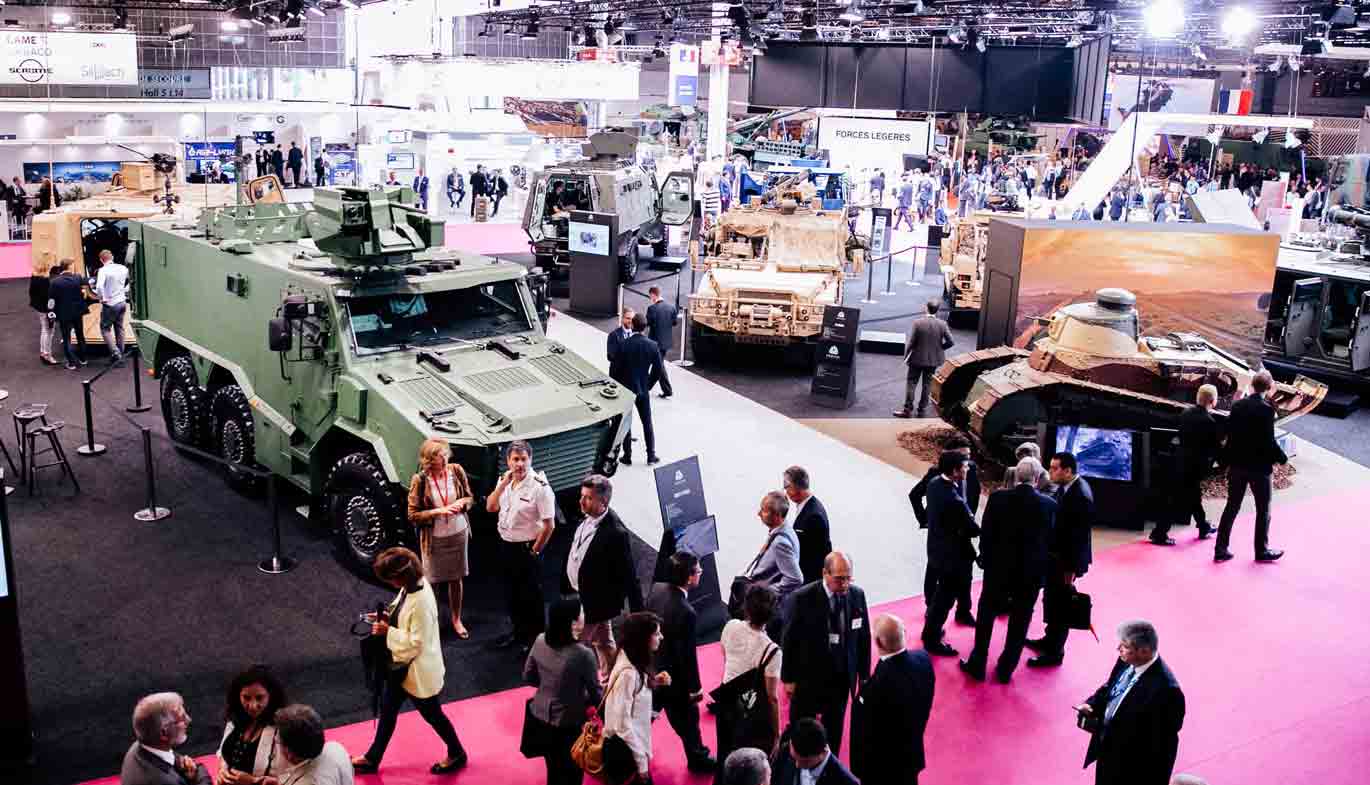"European defence needs to adjust to a new world", says Eurosatory director
Eurosatory 2024 seeks to provide new answers to new defence and security challenges
Anita Hawser
20 March 2024

“It is a new world we are living in and because of that we will have to provide new answers,” said Charles Beaudouin, exhibition director of Eurosatory.
This year’s show, which will run from the 14th to the 15th of June, and is set to attract 1,800 exhibitors from more than 60 countries, will take place not only against the backdrop of the ongoing war in Ukraine which has entered its second year, but rising geopolitical tensions in the Middle East, the US, Europe and Asia.
At a press conference in Paris this week, Beaudouin identified five megatrends for this new era of defence — geopolitics, economics, society, environment, and technology — and outlined how Eurosatory, one of the biggest events in the French defence and security calendar is responding to states’ needs to address heightened geopolitical, technological, and environmental tensions.
“Eurosatory provides deep analysis of this new era and challenges states will face,” said Beaudouin, adding that the warfighting domains of land, sea, air and cyberspace, will feature again at this year’s event with 50% of exhibitors offering defence and security solutions for civil environments, and 17% providing lethal solutions.
Innovation in defence is a key theme this year, with more than 80 start-ups expected to offer solutions in areas such as unmanned air systems, counter-UAV, and cyber.
“In 2018, there were no armed drones on Euroastory stands. It was taboo in Europe” said Beaudouin. “But because of the war [in Ukraine] this taboo is gone, and you can now find armed naval and land drones. In four years, we’ve seen a huge difference.”
With the first war on the continent since 1945, Europe’s defence industrial base is also tasked to move onto a war economy footing to help plug ammunition and equipment shortfalls and deliver equipment and materiel with greater speed and agility.
“We have to be able to mobilise additional resources so we can increase production chains and speed,” said Beaudouin. While defence budgets are increasing across Europe, with France’s defence budget growing to €43bn in 2023, Beaudouin said Russia spends 6% of its GDP on defence and produces far more defence equipment.
“We need mass, we don’t have enough,” he said.
Speaking at the press conference, Amélie Ferey, research fellow and head of the defence research unit at the French Institute of International Relations said the defence economy in Europe and France needs to be agile enough to absorb the need for new orders. “Do we have enough semiconductors and rare earth [minerals] to ensure the defence industry can meet demand?”
From high-intensity conflicts to hybrid wars, Jean-François Ripoche, director for research, technology and innovation at the European Defence Agency, said we need to ensure systems are affordable and combine short and long-term solutions. “We need to think about ammunition stocks in Europe,” he said. “We also need to prepare for the future. Tomorrow’s conflicts are not today’s. Europe needs to harmonise needs and have a more common approach, and keep investing in research and joint development and try to be more open in innovation. We know we will need to adjust to this new world.”
Marc Darmon, président of GICAT, the French land defence and security industry association, said French industry is rising to the challenge with MBDA missile systems going from a lead time of 24 to 15 months.
Darmon said the French defence industry is fully committed to meeting Ukraine’s needs with high-quality equipment for air defence, robotics, and demining. But he said innovation, AI and the environmental transition will be challenging for the industry. “Operational efficacy is key,” said Darmon. “The defence industry must contribute to the overall effort. French industry representatives are aware of the geopolitical stakes and have shown their resilience by shortening lead times and increasing production speed.
“Our defence industry has become an industry that plays a role everybody understands,” Darmon continued. “It is essential for our sustainability. We’re no longer talking about something niche. It’s known by everyone.”